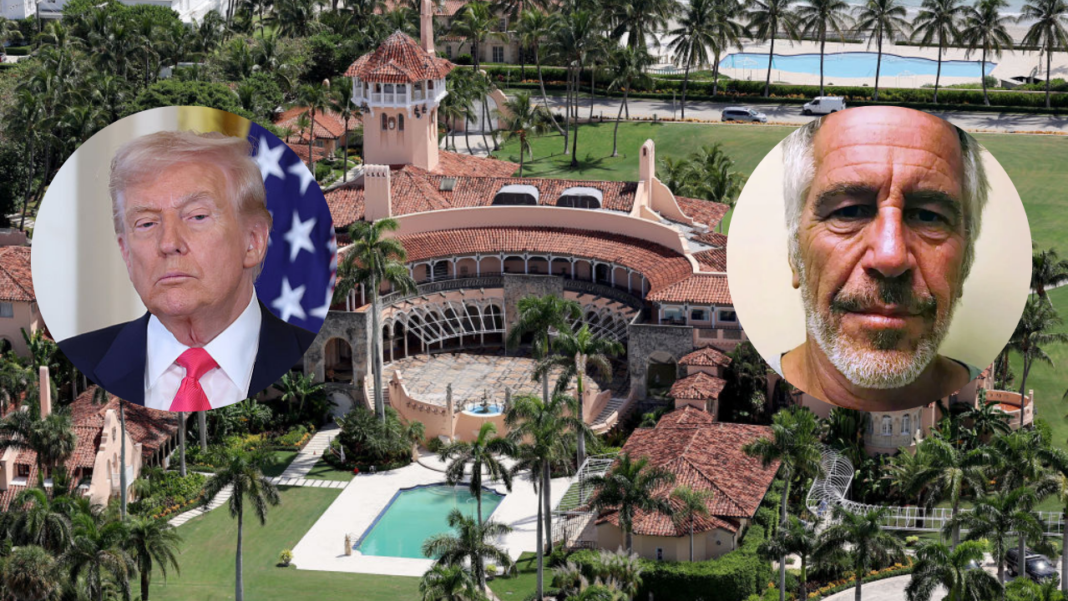The Epstein Files: Survivors Speak Out Amid Political Maneuvering
As the survivors of Jeffrey Epstein’s notorious sex trafficking operation await President Donald Trump’s crucial signature on the Epstein Files Transparency Act, the tension surrounding this high-profile case continues to escalate. The bill, designed to compel the full release of FBI files related to Epstein’s crimes, represents a significant step for many survivors seeking accountability and truth.
Sharlene Rochard’s Revelations
One of the notable voices among the survivors is Sharlene Rochard. During an interview with Jen Psaki, Rochard revealed a disturbing connection between her own experiences and Trump’s Mar-a-Lago estate, where she attended various parties as a teenager. “There were a lot of model parties at the Mar-a-Lago,” she recounted, painting a vivid picture of the glamorous yet perilous atmosphere. The juxtaposition of youth and privilege against the backdrop of exploitation raises critical questions about those in power and their awareness of the dark undercurrents in such social settings.
Grappling with Inquiries
Psaki’s probing questions about Trump’s potential knowledge of the “arrangement” brought to light the complexities of Rochard’s trauma. The visible hesitation in her response underscores the profound emotional weight these conversations carry. “Um… I don’t know if he was aware… actually, I can’t answer that, sorry,” she confessed, reflecting the fear and uncertainty that many survivors face when discussing their harrowing experiences.
A Community of Survivors
Rochard’s discomfort during the interview reveals a broader phenomenon among Epstein’s survivors: the struggle to publicly confront their abusers, especially when powerful figures are involved. Fellow survivor Amanda Roberts stepped in to support her, urging Rochard to speak her truth without the pressure of naming names. This supportive dynamic highlights the importance of community and solidarity among those speaking out against the atrocities they endured.
The Fear of Retaliation
Many survivors, including Rochard, express trepidation about detailing their experiences for fear of backlash from influential individuals implicated in the abuse. This atmosphere of intimidation not only hampers the pursuit of justice but also complicates the narrative surrounding Epstein’s network of enablers. The silence imposed by such fear illuminates the need for legal protections and support systems for victims.
Political Pressure on Trump
With growing political pressure for Trump to sign the Epstein Files Transparency Act, speculation about his motives adds another layer of intrigue to an already complicated narrative. Although he campaigned on a promise to release these incriminating documents, his administration’s actions have caused concerns about potential obfuscation. Initial hesitance from the Department of Justice to release the files has fueled suspicions and raised questions about transparency.
The Hoax Narrative
In recent statements, Trump has downplayed the Epstein controversy, labeling it a “hoax” orchestrated by political adversaries. By framing the situation in this way, Trump diverts attention from the grave implications of the allegations while reinforcing a narrative that conveniently distances him from any wrongdoing. This tactic generates substantial discourse about accountability and truth in political narratives, especially when intertwined with allegations of serious crimes.
The Bigger Picture
As the dialogue around Epstein’s atrocities continues, it becomes evident that this issue extends beyond individual stories. The experiences of survivors like Rochard underscore a complex web of complicity that involves numerous high-profile figures. With this broader context, the ramifications of Epstein’s trafficking operation resonate far and wide, impacting various aspects of society, from politics to corporate responsibility.
Seeking Justice
The ongoing battle for transparency encapsulated in the Epstein Files Transparency Act highlights the urgent need for justice not only for the survivors but also for the broader society. As these survivors bravely face their past, the hope for accountability and systemic change serves as a powerful reminder of the resilience and strength within the community of survivors. The push for transparency thus becomes not just about uncovering files, but about affirming the voices and experiences of those who have long been silenced.



